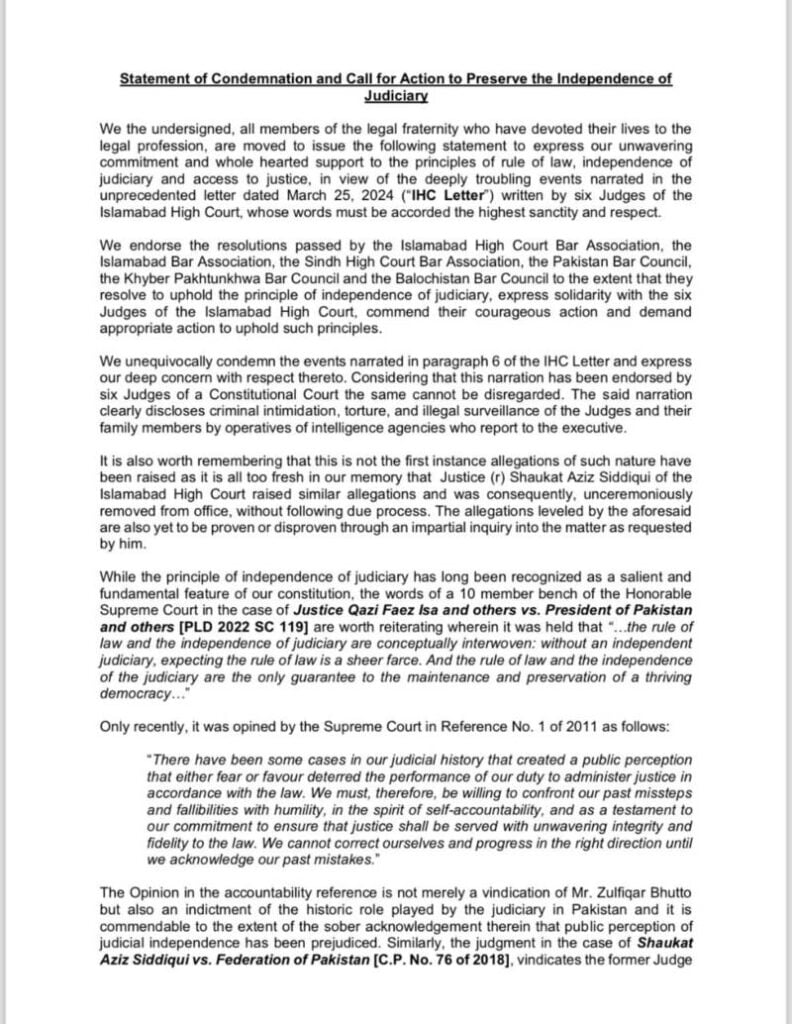In a significant development, Justice (retired) Tasadduq Jilani has opted out of heading the inquiry commission intended to investigate the alleged interference of intelligence agencies in the judiciary. This decision follows a revealing letter from six judges of the Islamabad High Court, shedding light on the purported meddling. The unfolding scenario prompted Chief Justice Qazi Faez Isa to establish a seven-member larger bench, aiming to delve into the allegations made by the Islamabad High Court judges.
The controversy gained momentum on March 30 when the formation of a one-member inquiry commission, led by Justice (retired) Tasadduq Jilani, was sanctioned to probe the accusations. However, in a dramatic turn of events, Justice Jilani declined the role, leaving the inquiry’s future uncertain.
Chief Justice Qazi Faez Isa’s suo moto action concerning the letter has led to the constitution of a bench that includes Justices Mansoor Ali Shah, Yahya Afridi, Jamal Khan Mandokhail, Athar Minallah, Musarrat Hilali, and Justice Naqeeb Akhtar Afghan. This bench is set to begin hearings from Wednesday, signalling the Supreme Court’s commitment to addressing the grave concerns raised.

The allegations of interference by intelligence agencies, particularly the ISI, in judicial processes have stirred considerable unrest within the legal community. Over 300 lawyers across Pakistan have rallied, urging the Supreme Court to act decisively under Article 184 (3) of the Constitution. They argue that such interference threatens the judiciary’s independence and undermines the rule of law.
Journalists specializing in judiciary coverage have voiced concerns that the formation of a seven-member bench, rather than a full court, might be perceived as an attempt to downplay the issue. This perception is fueled by reports of the military’s agencies exerting pressure on the judiciary, aiming to secure favourable outcomes through intimidation and surveillance, including the alleged installation of cameras in judges’ chambers.
The call to action by the Islamabad High Court judges has highlighted a critical juncture for Pakistan’s judiciary, emphasizing the need for transparency and independence in judicial proceedings. With the international community, including the United States, closely watching, the situation underscores the delicate balance between national security interests and the fundamental principles of justice and rule of law.


